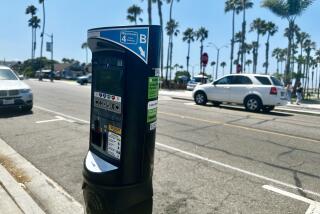Scam watch: Online car sales, secret shoppers, resort hotel
Here is a roundup of alleged cons, frauds and schemes to watch out for.
Online car sales – Two foreign nationals have pleaded guilty to running an Internet auto-sales scam that caused victims to lose more than $4 million. Corneliu Weikum, 38, a Romanian citizen who lives in Germany, and Yulia Mishina-Heffron, 24, of Russia, were accused of advertising cars for sale on popular websites such as Yahoo, EBay and AutoTrader, taking payment from victims and then never delivering the cars. The scheme ran from 2007 to 2010, prosecutors said. Victims of the scam were instructed to deposit their payments into bank accounts established at the direction of Weikum and Mishina-Heffron. The scheme unraveled when officials found more than $1 million in cash in Weikum’s luggage at McCarran International Airport in Las Vegas. They later found $20,000 stuffed into stereo speakers that Mishina-Heffron had attempted to ship to Germany. Under a plea agreement, which still needs a judge’s approval, Weikum will be sentenced to eight years in prison and Mishina-Heffron to nearly six years.
Secret shoppers – New York Attorney General Eric T. Schneiderman has obtained a court order shutting down two websites that were used to defraud people looking to work as “secret shoppers.” Job seekers who responded to online advertisements about the jobs were sent counterfeit checks for $2,000 and asked to send $1,700 by Western Union to their new employers, keeping $300 for themselves. They were also instructed to evaluate the performance of the Western Union employees. The $2,000 checks were bogus and would be returned unpaid, causing the victims to lose the $1,700 they sent. “These scams are particularly insidious because they target individuals looking for ways to bolster their income in today’s challenging job climate,” Schneiderman said. “While legitimate ‘work from home’ opportunities do exist, scammers who are simply stealing money under the guise of offering employment are on notice. Our office will continue to protect consumers and shut these bad actors down.” Schneiderman recommended that anyone looking for work on the Internet refrain from making payments to their new employers or cash checks for online employers. “There is virtually no legitimate reason for anyone to give you a check or money order and in turn ask you to transfer funds via Western Union, MoneyGram or any other wire service,” Schneiderman said. “No legitimate company conducts business in this manner.”
Dominican Republic resort – Two men have been accused of defrauding investors in a resort hotel in the Dominican Republic out of more than $90 million. James B. Catledge of Rancho Santa Fe and Derek F.C. Elliott of Canada were accused in the indictment of mail fraud for allegedly duping investors by failing to disclose that they would take 44% of their money as commissions and put only a small amount into renovating the hotel. According to the indictment, Catledge, 45, and Elliott, 42, used a bank loan to purchase an old hotel in the Dominican Republic, which they called the Juan Dolio Resort. They then began to renovate the hotel and to solicit investments in the resort. The pair were accused of failing to inform investors that just a small fraction of their money went to renovate the hotel and that some of it would be diverted to other projects. Renovations on the hotel were never completed. Neither of the men has entered a plea. The prosecution is the result of a two-year investigation by the FBI.
ALSO:
Scam watch: Work-at-home jobs, fake lawyers, voicemail
Scam watch: Credit card interest, real estate, time shares
Scam watch: Online auctions, phony credit cards, infomercials
Follow Stuart Pfeifer on Twitter
More to Read
Inside the business of entertainment
The Wide Shot brings you news, analysis and insights on everything from streaming wars to production — and what it all means for the future.
You may occasionally receive promotional content from the Los Angeles Times.











